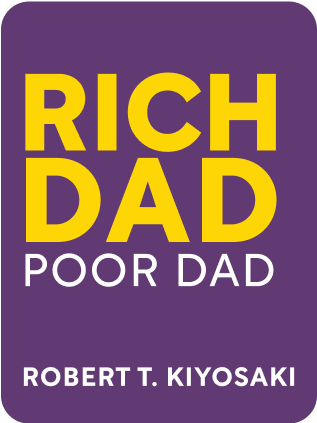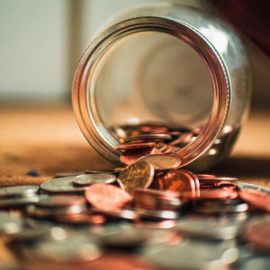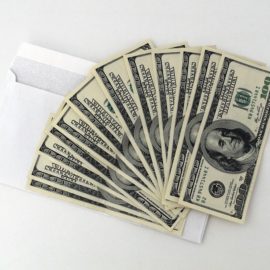

This article is an excerpt from the Shortform summary of "Rich Dad Poor Dad" by Robert T. Kiyosaki. Shortform has the world's best summaries of books you should be reading.
Like this article? Sign up for a free trial here .
What does achieving financial independence mean? And what steps can you take?
Achieving financial independence is not as difficult as you think. In fact, achieving financial independence takes just a few steps.
Achieving Financial Independence
You might have the goal of achieving financial independence, which is to no longer be dependent on your wages. Ideally, you can live forever off of the extra income your money generates – you make more money doing nothing than you consume.
The basic steps to financial independence are:
- Figure out how much money you need per year to survive.
- Figure out how much in assets you need, to generate a return that exceeds the first number (after taxes and expenses).
- Acquire assets that return that amount.
Even if your goal isn’t achieving financial independence, these are still good principles of how to get the best return for your money.
So it’s that simple. But simple doesn’t mean easy. The major blocks are:
- psychological, where people fear the risk of higher-returning assets
- tactical, where people don’t know how to execute well
The rest of this Rich Dad, Poor Dad summary covers both obstacles.
Lesson 1: The Rich Don’t Work For Money – Money Works for Them
With the narrative over, the rest of the book covers Robert Kiyosaki’s major lessons from Rich Dad.
Most people work 40+ hours a week to earn salaries. Many then take their earnings to 1) buy stuff they think will make them happy (but this is short-lived), 2) save the remainder in a conservative way.
While this ensures some degree of stability, it doesn’t make you rich. And working to earn a pension makes you financially dependent – let alone the risk that pensions won’t be funded decades from now, when you need it.
The counter-intuitive lesson here is this: the rich don’t get rich merely by being paid higher salaries (though this is a great help). They get rich so by owning things. No one on the Forbes billionaire list got there purely with a salary.
(As tech investor Sam Altman says, “You get truly rich by owning things that increase rapidly in value. This can be a piece of a business, real estate, natural resource, intellectual property, or other similar things. But somehow or other, you need to own equity in something, instead of just selling your time. Time only scales linearly.”)
When you work for an employer, you get paid only a fraction of the value that you generate for the employer (otherwise, if the business would go bankrupt). Say your salary is $50k a year. Your work may allow your employer to earn $100k in sales that year, yielding a clean profit after deducting your salary. This is a barrier to learning how to achieve financial independence.
- Even further, if your work isn’t just a pure service but also builds value in the company – say in R&D or product improvement – the value may be many multiples of your salary.
The key to how to achieve financial independence is having money that makes more money. You want your money to make enough money that you don’t have to work anymore.
Working for No Pay
Though it may seem counter intuitive, one of the steps to financial independence is working for no pay. Rich Dad’s next order is for the author and Mike to go back working, but now with zero pay. When Kiyosaki complains, Rich Dad challenges him: we can go back to our original deal of 10 cents, or you can do what most people do – complain there isn’t enough pay, and go looking for another job. When Kiyosaki is confused, Rich Dad advises him to use his head.
After working for 3 more weeks, both kids are confused by what they’re supposed to be learning. Rich Dad comes by and tells them there’s a lesson to be learned here.
“If you don’t learn this lesson, you’ll end up like other people who work hard, clinging to their pay and constantly looking forward for their vacation days and little raises. Here – I’ll raise your pay to 25 cents an hour. Does that excite you? Do you want to take it?”
Rich Dad keeps raising the stakes – a dollar an hour. $2 an hour. The author’s imagination runs wild at having that much money, but he knows he’s being tested. Each person has a weak and needy part of their soul that can be bought. Each person also has a part of their soul that is strong and can never be bought.
The point of the lesson: most people run endlessly in a loop between fear and greed. Achieving financial independence doesn’t have to be driven by greed.
- Fear of not having money makes people work hard.
- Then once they get a paycheck, greed gets them salivating over all the things money can buy. They spend the money thinking it can buy joy, but the joy is short-lived. Soon they have money problems, and fear drives back in.
- This cycles endlessly, even as their paycheck increases – this is the Rat Race. Money ends up running their lives.
- Even rich people are subject to this fear – the more money they get, the more terrified they are of losing it. They fear losing social standing, and the weak part of their soul gets even more desperate.
Rich Dad was trying to teach the kids not to give into emotions around money, but rather to delay reactions and think.
- Taking on the job for free was the first resistance to emotions.
- Next, raising the hourly wage for the kids was a metaphor for adult salaries. Incremental raises trigger hopes for incremental advancements to life, causing people to live in a perpetual loop and never truly exploring their dreams.
The Breakthrough
Rich Dad leaves with this advice: “The sooner you stop thinking you need a paycheck, the easier your adult life will be. Keep learning, keep using your brain, keep working for free, and your mind will make you more money far beyond what I could afford to pay you. You will see opportunities right under your nose that other people choose not to see. They’re blind to these opportunities because they look anxiously for money and security.” This is on of the important steps to financial independence.
After a few more weeks of working for free, one day Kiyosaki has an insight – the store he worked in regularly disposed of its comic books. Could they collect the books, then start a comic book library open to the public? They could charge other kids 10 cents admission for unlimited reading – a clear bargain, since a comic costs 10 cents each.
After some work, they launch with great success. They earn $9 per week over 3 months. They pay Mike’s sister $1 a week for managing the store.
After three months, bullies break into the room, and Rich Dad suggests they shut down the business. But the lesson was learned: by not being paid, they were forced to find opportunities to make money. They avoided being distracted by the short-term carrot, and learned how to achieve financial independence.
While it’s not easy, achieving financial independence is within reach. You can take your first steps toward achieving financial independence by following the advice of rich dad.

———End of Preview———
Like what you just read? Read the rest of the world's best summary of Robert T. Kiyosaki's "Rich Dad Poor Dad" at Shortform .
Here's what you'll find in our full Rich Dad Poor Dad summary :
- The key differences in how rich dad and poor dad approached life
- Why it's a terrible idea to buy an expensive house
- How to overcome your own mental blocks to become wealthy for life






